News
Transform waste into wisdom of saving the future:
“The living condition of the poor has been made worse by the waste we generate,” some children wrote down what they had learned from the discussion about the global waste issue. Others came up with various proposals, such as to "install air-purifying machines on top of incinerators" or to "invent edible plastics." Meng Jun Wang (王盟君), volunteer who played as the Chairman of the International Summit on World Situation, thought that putting current international issues in the role-playing game provides a good opportunity for education. Through such a game, children learn to care for the earth, to communicate and to strive for the common good. Wang also observed that during the initial stage of negotiation, schoolchildren, starting from their own experience, were mostly concerned about issues on livelihood, health, and economics. After further discussion and film watching, with a raised awareness for environmental protection, th...
Monastic Summer Retreats : Benefiting Others on the Basis of Diligent Practice
During the Seven-Day Amitabha Buddha Recitation Retreat, the second stage of the Vassa this year, Ven. Chang Sheng (常乘法師), the Monastic Advisor and the Disciplinary Monk, led the Sangha to recite Amitabha Buddha’s name in motion. (Photography by Wang Yufa) This year, the Vassa was consisted of three consecutive retreats: Five-Day Relaxation Retreat, Seven-Day Amitabha Buddha Recitation Retreat and Fourteen-Day Intensive Retreat. The Five-Day and Seven-Day retreats were conducted with the video recordings of late Master Sheng Yen’s Dharma Talks, guiding the monastics to recollect the mind gradually through methods such as repentance, prostration, meditation and Buddha name recitation, hoping to deepen their right understanding, right view, right belief and right actions. Ven. Chi Chern, one of Master Sheng Yen’s Dharma heirs, was invited to lead the Fourteen-Day intensive retreat. He continued with the unfinished Dharma talks from last year on the Song of Enlightenment by Master Yong Jia. Moreover, he categorized the sixty plus poems in the Song of Enlightenment into five groups, including Chan practitioner, Chan mind, Chan state, principle of Chan and non-Chan practices, helping the Sangha to better comprehend the rich content expounded in the work. On the one hand, Ven. Chi Chern emphasized that Mahayana Buddhism focuses especially on “benefiting others.” On the other hand, however, it is only through the incremental understanding of and benefit from the Buddhadharma based on one’s diligent practice day after day that pure liberation – “benefiting the self” – could really take root, which in turn could then be transformed into compassion – “benefiting others.” From there, harmony of the human society could be reached and the Buddha’s original intention of benefiting oneself in benefiting others could also be actualized. Therefore, the last day of Vassa is also called “Joyful Day for the Buddha.” Texts: Dharma Drum Monthly (法鼓雜誌) Photos: Wang, Yu-Fa (王育發) Translation: Frances Liu (劉演珮) Editing: Elenda Huang, Echo Shao (邵慧怡), John Wu (吳俊宏)
600 Followers Took Refuge in the Three Jewels at DDM
Under the guidance of Venerable Guo Huei (果暉法師), DDM Abbot President, all 600 followers repented and took refuge in front of the Buddha then made vows, took precepts and transferred merits to all sentient beings. In his Dharma Talk, Venerable Guo Huei expounded that after taking refuge, Buddhists look up to the Three Jewels for growth in personality and direction in life. Meanwhile, when our mind constantly resonates with the Dharma, compassion and kindness, it would naturally bring along sense of security to our life, as well as health, peace, joy and happiness. Venerable Guo Huei also exhorted all the new Buddhists to embrace the spirit of Bodhisattva practices by first thoroughly understand what late Master Sheng Yen tried to convey in his “Orthodox Chinese Buddhism.” Apart from “reciting Guan Yin” regularly, in daily life, prostration to the Buddha, reciting mantras or sutras or volunteering could all be part of one’s cultivation of the Guan Yin method. He wished that DDM followers could duly fulfill their responsibilities as disciples of the Three Jewels: first settling their own body and mind and uplifting their own character, then helping families and friends to grow and enhancing happiness for the society and the whole world. Rong Cheng Liu (劉榮成) said that after learning Buddhism, he gradually realized that the practice of Buddhism is actually a huge spiritual project and that taking refuge in the Three Jewels is a necessary stage for all Buddhists. Therefore, he brought along his whole family to take refuge with him, including his 85-year-old mother, his Vietnamese wife and his maid from overseas. When DDM monastics went out to give blessings in the Grand Hall, Abbot President extended his tribute in particular to Han Zhang Fan(范漢章), an 100-year-old lay follower. His hearing and memory is declining constantly, however, as the day for the ceremony drew near, he kept on reminding his family to take him to attend it, deeply moving Ms. Shu Hua Fan (范淑華) and Mr. Qing Long Shi (施慶隆) from Mr. Fan's younger generation. Seeing that many overseas followers earnestly hope to take refuge as well, Abbot President Venerable Guo Huei made a special trip to DDM Vancouver Branch and San Francisco Branch to host the Refuge-Taking Ceremony. Prior to the conferral, he explained to western followers present the meaning of taking refuge and the five precepts. In addition, he also gave a lecture on Buddhism, hoping to bring to the world the good wish to build a pure land on earth, as well as the idea of having faith in the Buddha, following the Dharma, respecting the Sangha. Text: Chang, Yao-Chong (張曜鐘) Photos: Lai, Xin-Ping (賴心萍); Chang, Tian-Pei (張田沛); Lee-fan (李東陽) Translation: Elenda Huang Editing: DDM Editorial Team; John Wu (吳俊宏)
Blessing Ceremony for Chinese Lantern Festival
Led by several Venerable Fashis , ‘The Dharma Ceremony of Avalokitesvara Bodhisattva for Peace’ was performed a total of seven times in the Grand Buddha Hall of DDM . . Many people participated in this harmonious event, joining together to send blessings for peace and harmony to their families, to grow in wisdom, and settle their minds and bodies for the fresh new year. Venerable Master Sheng Yen, the founder of DDM, especially availed himself at the Grand Buddha Hall at 11:00am to preside over the ceremony. The Master said he hoped everyone could actively participate in the blessing ceremony. “I will also pray for blessings with you together and I wish everyone peace in 2007.” Venerable Guo Dong, the Abbot President of DDM, was also in attendance to officiate the solemn Consecration Ceremony and the last session of the Dharma Ceremony of Avalokitesvara Bodhisattva for Peace. The Abbot President said that DDM World Center for Buddhist Education has become a paramount place in northern Taiwan for people to seek Dharma joy, to grow in Dharma wisdom, to calm the mind and search for inner peace. “DDM warmly welcomes everyone to come here to enjoy the Dharma joy and pacify the mind and body. Together, let's strive to achieve the goal of ‘uplifting the character of humanity, and building a pure land on earth’,” the Abbot President said. In addition to participating in the Dharma ceremonies held in the Grand Buddha Hall, guests also enjoy ed the tasty glutinous rice balls, traditionally eaten on the day of Chinese Lantern Festival , served by volunteers throughout the day. At 8:00pm , following the conclusion of the Dharma Ceremonies, participants led by the Venerables headed for the Lotus Bell Tower . With w hite lanterns in their hand s , the dharma assembly chanted loudly the holy name of ‘Namo Avalokitesvara Bodhisattva (Namo Guan Shiyin Pu Sa)’ with the purpose of praying for peace and harmony. The program ended successfully at 10:00pm w ith the participants led by Venerable Fashis peacefully chanting and circl ing the Lotus Bell once with joined palms . (Reported and photos taken by Jin Yang/edited by Vicky Chan)
Peace begin with the self
I'm very pleased to see so many old friends and new friends here. On behalf of DDRC I welcome you all. I hope that in the next two days you will all have an enjoyable and peaceful life. Now I have a question for our young people here, "How can world peace be achieved and what can be done to promote it?" Has anyone got any ideas? In the past I have read many famous people's writings and attended some presentations. Some people emphasize that it is not difficult to achieve world peace, we only need to change the way the other party thinks; and if a country, an ethnic group or a religion is prepared to change their stance, peace is imminent. Would you concur with such a view? For people with such a view, are they promoters or destroyers of world peace? There are also many people who advocate peace by employing extremist measures towards other people and situations. They want to have instant peace by using violence, but instead they are causing peace to be further beyond reach. Our world has moved on from the 20th century to the 21st century, the idea that we must employ violence to achieve everlasting peace should be changed. Violence will only bring more violence, such concepts as 'an eye for an eye' and 'a tooth for a tooth' only leads to unresolvable conflicts. Our minds work in a similar way. If we treat others with anger and hatred, others will treat us with anger and hatred. However if we treat others with friendliness, compassion and kindness, even though the other person is still very angry or is prone to violence, he will be affected by our gentleness and compassion and change himself. At least he will not treat us with anger and hatred. Peace must start from within us. When we are at peace then the world we see is also at peace. Even if the outside environment is not at harmony, at least we won't be affected; we won't create conflict, turmoil and antagonism. When our mind is settled and at peace those around us will follow suit. This is a preliminary meeting of our young people here prior to the UN Summit. As far as I know, the theme of this UN Global Youth Leaders Peace Summit is 'Elimination of Poverty in the World'. Frankly speaking, I don't think the problem of human poverty can be solved by you people. Giving young people the task of solving poverty which has been in existence in human history for such a long time is easier said than done! Yet I still have to say that it is not impossible to solve the issue of poverty in the world. There are still areas that young people can work on. Firstly you must not be impoverished; it is only then that you can help others. The meaning of not being impoverished is to be unselfish, not greedy, not indulging in endless pursuits but be ready at all times to contribute what you have. This way one is not in spiritual impoverishment. On the contrary, even a wealthy person is poor if he is a miser and is only concerned about himself. When you attend the UN Global Youth Leaders Peace Summit you may like to raise this point: the cause of human poverty is not due to natural disasters but man made wars. Hence to solve this problem is to end all wars. To end all wars we must have a spiritually rich and generous heart. Material supplies and food provisions may ease the phenomena of poverty for a while, but the ultimate way of solving world poverty is through our own hearts, through our own mind which is not in spiritual poverty but is calm and peaceful. Blessings to all of you and blessings for world peace. (Translated by Agnes Chow)
The Fifth Dispatch of Medical Relief for DDM in Sri Lanka
This time up to 3,000 victims will receive DDM's medical relief: 1200 people living in the Taiwan Village and its vicinity, and 1800 living in poverty areas of Weligama. Led by Dr. Wenzhong Pan, DDM's medical relief team is warmly welcomed and earns a heartfelt appreciation from the local people every time. In addition to providing a screening test for chronicle disease, such as diabetic and hypertension, the team will educate people by passing them the knowledge of personal hygiene, for example the applications of toothbrushes and nail clippers. According to past experiences, the appearance of post-traumatic stress disorder symptom is not only apparent from the time when the disaster occurs but also from the mounting pressure in the face of long-term reconstructions and of in-depth senses of helplessness and desperation. Thus, for the purpose of helping local victims to assuage their stressful mind and body, the medical relief team also embraces psychologists, nurses and psychiatrists for psychological relief and evaluation. In order to elevate the awareness of public hygiene in the local communities, the medical relief team will also put the project of public hygiene education into force. This will greatly cut down the sources of disease and reduce the chances of contagion. In February 2005, DDM began to send out volunteers to provide local people living in tsunami affected areas with long-term and front-line humanitarian assistances at the DDM Peace of Mind Relief Station in Sri Lanka. Volunteers uphold the beliefs of DDM: to always treat the work of mind relief as the main priority in accordance with the vision of "uplifting the character of humanity and building a pure land on earth." (translated by Jin Yang/edited by Jessica Chow)
A New Landmark of DDM: the Consecration of Welcoming Guanyin
Altogether standing in front of the Stone of Spiritual Mountain and Pure Land, mainly presided over by the Abbot President of DDM, Venerable Guo Dong, the solemn ceremony was first started with the red ribbon-cutting ritual, and with the President of General Association of Dharma Upholders (GADU), Chen Jianan, and other four vice presidents of GADU---Chou Wenjin, Yang Wenxiong, Wang Jinyi and Huang Chuchi---amid a holy sound of chanting Buddhist scriptures for celebrating its accomplishment and placement. Soon after the ribbon-cutting ritual, led by 80 Fashis, devoted pilgrims walked slowly uphill in line to the place where the Welcoming Guanyin is situated for the Consecration Ceremony. After half an hour of chanting Buddhist scriptures, the Abbot President slowly pulled down altogether the red carpet originally covered on the head of Welcoming Guanyin with the President of Sheng Yen Education Foundation, Shi Jianchang, the General Manager of Chie Chin Electronic Company, Yo Chunshu, the representative of Philippine Airlines, Song Limin, and Lin Qingxia. In addition to expressing the greatest gratitude to all the DDM's followers, with presenting a small-size statue of Welcoming Guanyin to the Philippine Airlines received by its representative Song Limin as a gift from DDM, Venerable Guo Dong appreciated much the Philippine Airlines for giving much help to the accomplishment of Welcoming Guanyin in the past. The Abbot President said that DDM welcomed all people to come to the Spiritual Mountain and Pure Land (the DDM World Center for Buddhist Education) for Dharma learning and upholding the Dharma and practicing the ideas of Pure Land on Earth for the purification of human mind. At the end, the Most Venerable Master Sheng Yen also presented the ceremony to take a group photo with honored guests in front of the Welcoming Guanyin. The ceremony ended successfully and joyfully. In the afternoon, the 'Meet with the Dharma' activity was held by the Sheng Yen Education Foundation at the International Conference Hall. The activity was mainly hosted by Venerable Shen Ru from Beijing University and Professor Daniel Stevenson from University of Kansas in USA in order to share their experiences of Dharma learning with around 200 attendants for compassion and wisdom of the Buddha. (Translated and photos taken by Jin Yang)
Seeds of Hope Under the Southern Skies
Initial circulation of this book has sparked public interest towards Dharma Drum Mountain's (DDM/Fagushan) international humanitarian relief operations. Celebrities, corporations and charity groups have shown tremendous support after over two thousand copies were distributed. "Seeds of Hope Under the Southern Skies" recognizes the efforts made towards the "spiritual restoration" operations in disaster-affected areas. DDM's volunteers regarded the "spiritual restoration" plan as pivotal and assisted enthusiastically in the areas of education, health and improving the living conditions for the victims, helping them to cultivate a peaceful body, mind and family. Despite their heavy workload, volunteers fully familiarized themselves with the languages and customs of the affect areas, gaining the trust and friendship of the communities. The Deputy Secretary-General of Dharma Drum Social Welfare and Charity Foundation, Iling Chen, indicated the book was not an appeal for pity and grief and that it is only through positive appeal and "spiritual restoration" efforts that disaster victims could recover from grief and trauma and step into a new future. Dharma Drum Social Welfare and Charity Foundation aims to share the experiences of international humanitarian relief operations with others in its original plan; however, there were more stories and experiences to share following further relief operations. Therefore, under the auspices of Ihua Wu, Vice President of Dharma Drum Social Welfare and Charity Foundation, the book was published at the end of December 2006 with full support from Venerable Guo Yi, the Vice Executive Officer of Dharma Drum Publishing Corp. "Seeds of Hope Under the Southern Skies" has been actively introduced to members of the public in Taiwan. Dharma Drum Social Welfare and Charity Foundation distributed copies to celebrities and decision makers of corporations, who also extended their strong support. Venerable Guo Dong, the Abbot President of DDM, expresses in the preface: "The book has recorded the progress of humanitarian relief operations in the South-East Asian tsunami affected regions. It transports the reader to the disaster-affected areas and reveals the living conditions of the local victims and DDM's volunteers' contributions. Through the use of photography and the written word, we are able to fully sense that the impact of relief operations and can awaken the compassion within our hearts." The 220-page publication plus attached CD illustrate the humanitarian work in Sri Lanka and Indonesia. "Seeds of Hope Under the Southern Skies" now can be found in major bookstores in Taiwan. (translated by Jin Yang/edited by Abbey Wong)
Blessing Ceremony of Taking Refuge for Peace
In the face of nearly 2,250 new disciples, Venerable Master warmly encouraged the disciples to stay close to the learning of the Dharma, to uphold the Triple Jewels---the Buddha, the Dharma and the Sangha---and to raise wisdom and courage through their learning of the Dharma, for dealing optimistically with any distress in life. In recent years, religion has suddenly become the best spiritual harbour for many people. The hostilities created in society through many ethnic disputes, occurring both in Taiwan and in the international community, have seen more people turn to religion. Regarding "the safeguard of spiritual environment" as a guideline, Dharma Drum Mountain provides people with applied Buddhist concepts and methods, in order to lead them to the important process of learning how to let go of burdens and vexations. Therefore, there are more people taking refuge in the Triple Jewels in recent years. Buddhist believers expect that with being a Buddhist, they could sense the compassion and wisdom of the Buddha and eventually attain spiritual peace. Venerable Master Sheng Yen taught the disciples that taking refuge creates a sense of belonging and to go further is to recognise Buddhism as a "home". This means you should uphold the Triple Jewels just like you cherish your own home; you should not let outside forces interfere with the environment of upholding the Dharma. At the same time, the Master encouraged new disciples to practice the compassion of the Bodhisattva and to walk on the Bodhisattva Path. When you encounter any difficulty you should come back "home" to look for comfort and to face life with a positive attitude, Buddhist wisdom and courage. However, taking refuge in the Triple Jewels is only a beginning. You can only upgrade yourself by truly practicing the Dharma. Thus, Dharma Drum Mountain has scheduled different meditation activities for disciples to gradually enter the treasure of the Dharma for wisdom, compassion and spiritual peace. (translated by Jin Yang)
The Buddha Scriptures through Animated Images
Following the inauguration of the world's biggest Lotus Bell at Dharma Drum Mountain World Center for Buddhist Education, in Jinshan Township, DDM/Fagushan is hosting the special Buddhist Arts Exhibition. An important feature in this Exhibition is the animated images of Buddhist statues expounding the Buddhist Scriptures. This special Exhibition will run till the 2nd September 2007 at the Auxiliary Hall of DDM World Center for Buddhist Education. The Exhibition is opened from 9:00am to 5:00pm everyday. The Exhibition conveys the blessings and wisdom of the Dharma, Buddha, and Bodhisattva to people who appreciate Buddhist arts. It is made up of five basic units/elements: the Lotus Bell with its inscribed Scripture, the Artistry of Buddhist Statues, Buddhist Scriptures and Chinese Calligraphy, Animated Transformation of Buddhist Scripture and Pictures, and Digitalization and Interaction. In appreciation of the effort toward the inauguration of the Lotus Bell and to celebrate for the arrival of Chinese Lunar New Year, more than twenty artists had created many animated Buddha images so that visitors could feel the Dharma joy, sense the tranquility and exquisiteness and to learn the wisdom of Buddha. With reference to key Buddhist statues and scriptures, the Exhibition utilizes visual Images in an animated and interactive mode to gradually lead people into the Buddhist heritage, enabling them to fully sense the magic of the "dialogue". DDM warmly welcomes everyone to this extraordinary and blissful Exhibition and to share the joy of the Dharma at this most auspicious place. (Reported & photos taken by Jin Yang/edited by Chiew Shin-Yee)

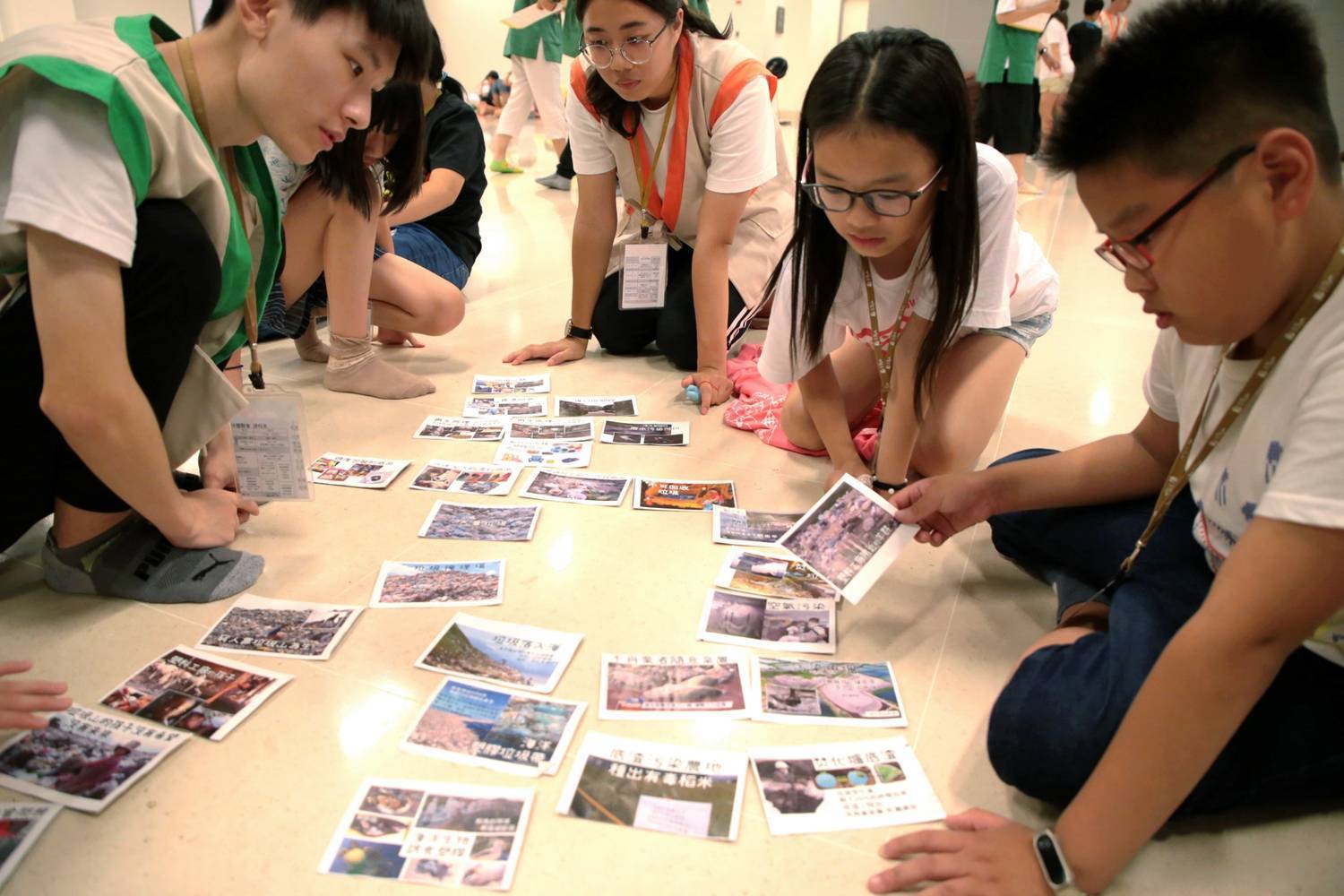
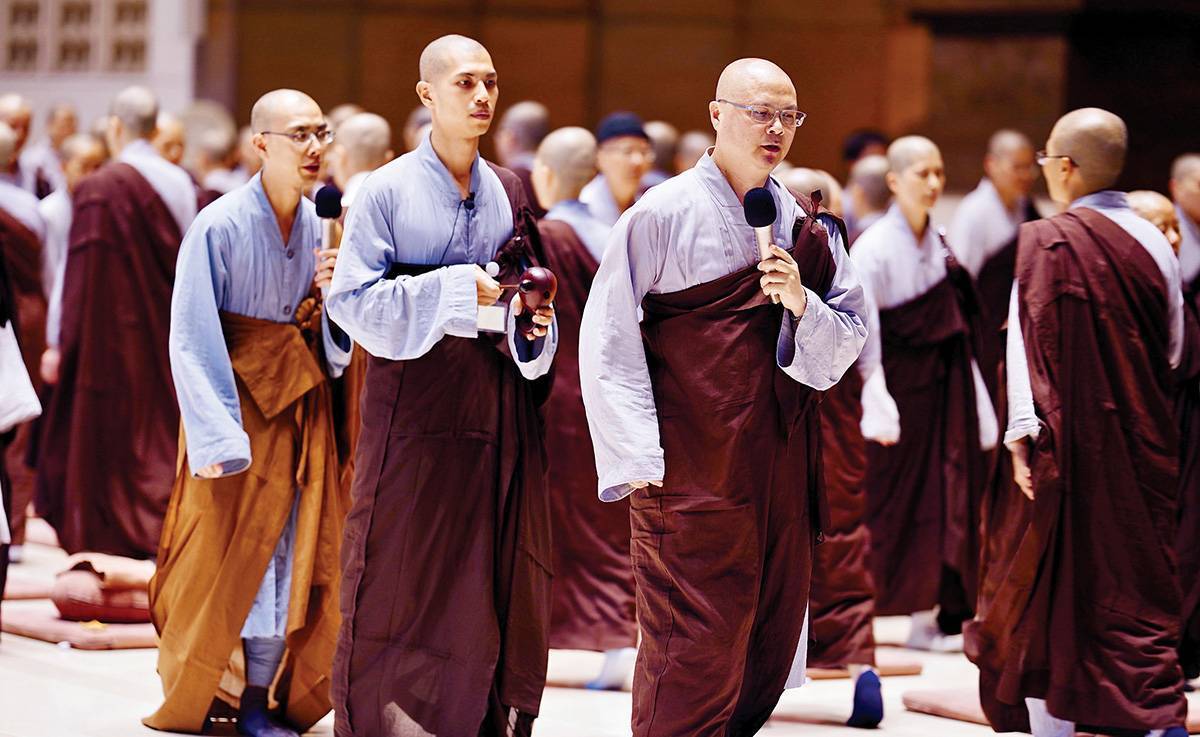
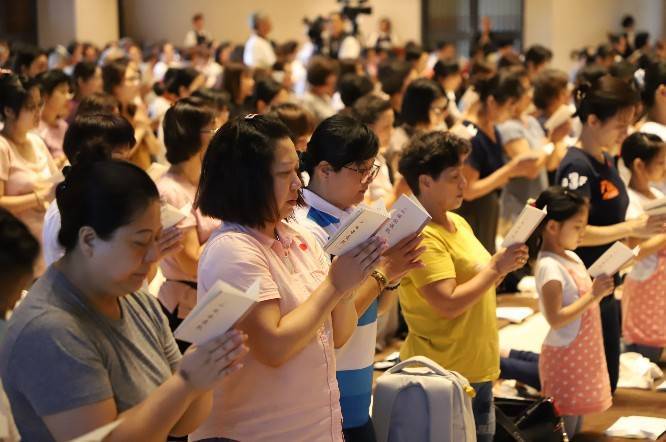
.jpg)
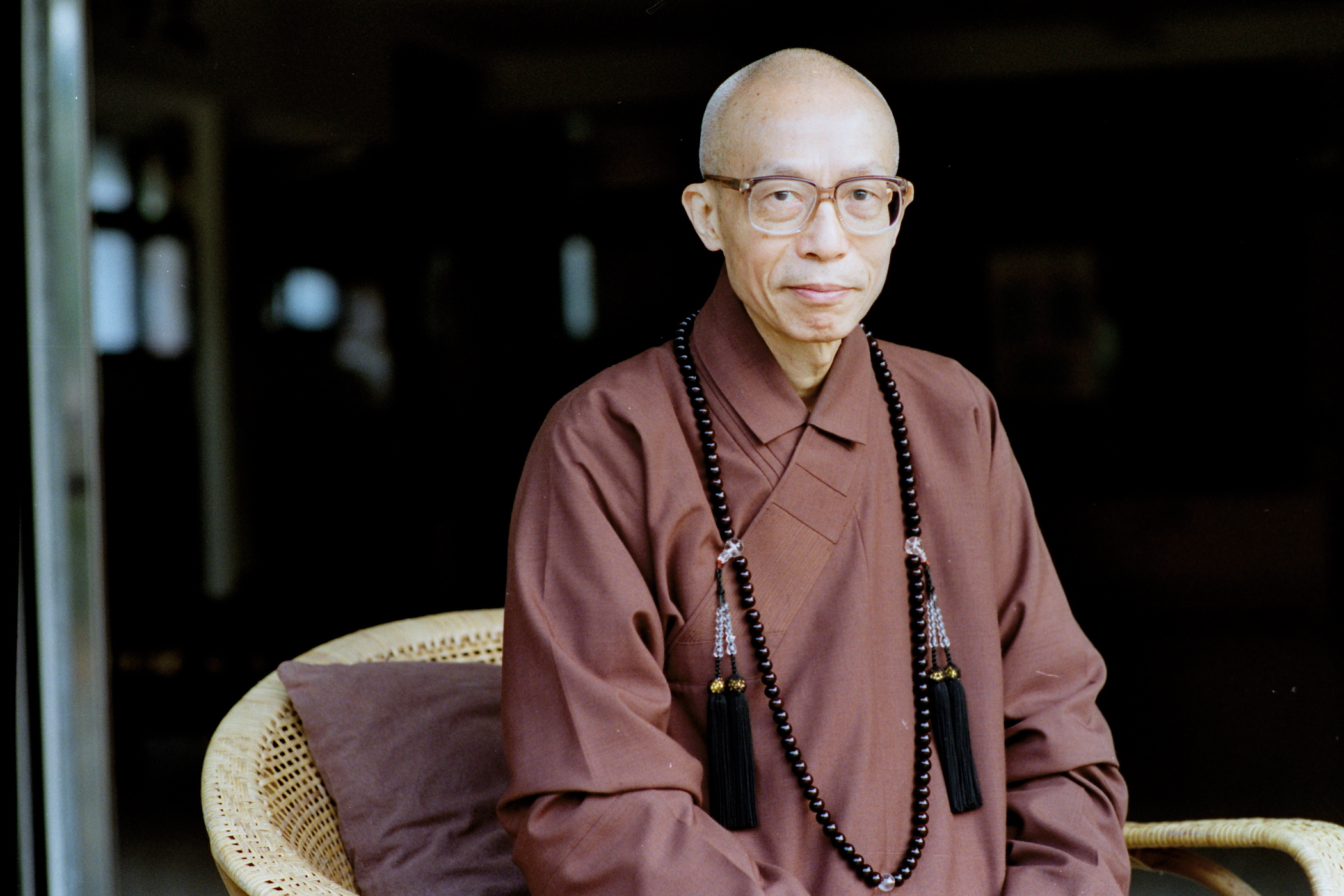
.jpg)
.jpg)
.jpg)
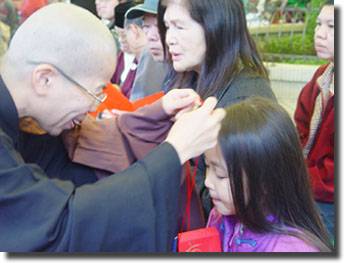
.jpg)